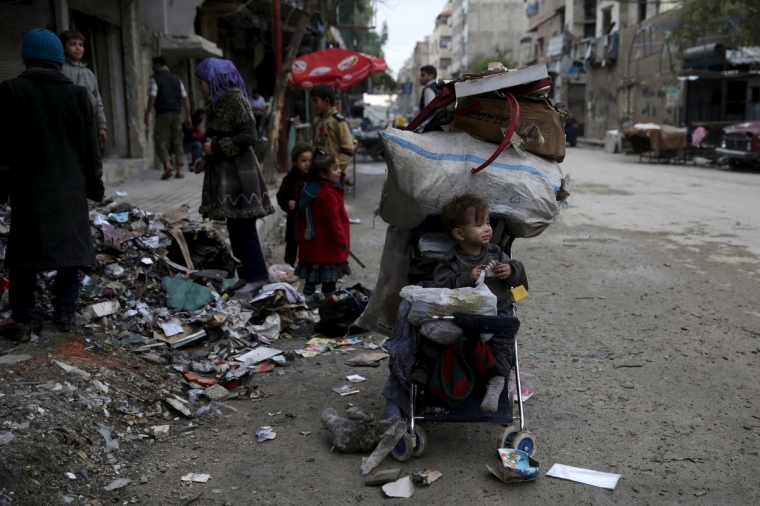Archbishop Tobin settles Syrian refugees in Indiana despite governor's ban

INDIANAPOLIS (Christian Examiner) – Archbishop Joseph Tobin welcomed a Syrian refugee family of four to Indianapolis Monday night even though Gov. Mike Pence ordered no Syrian refugees to settle in the state.
The archbishop released a statement on Tuesday about the family, who fled violence in Syria three years ago and have been waiting to enter the country for two years during "extensive security checks and personal interviews" before finally receiving government approval, Tobin said.
"This is not about this family and it certainly is not about these wonderful charities that work every day with the state of Indiana," Pence said, according to FOX 59. "This is about public safety. It's not about identifying individuals on the basis of nationality."
"I listened to the governor's concerns regarding security and prayerfully considered his request that we defer from welcoming them [the Syrian family] until Congress had approved new legislation regarding immigrants and refugees," Tobin wrote, adding he informed the governor before the family's arrival that Catholic Charities would receive the family as planned.
On Tuesday a spokesperson for Gov. Pence said the governor "respectfully disagreed" with Catholic Charities' decision, FOX reported.
Gov. Pence said he has compassion for Syrian refugees but believes his order to ban refugees protects Americans. "I don't think we have to choose between security and compassion," he said, according to the Indy Star. He has recommended the immigration process to be completely overhauled.
Archbishop Tobin said the archdiocese had been welcoming and helping resettle refugees for 40 years and would continue the "essential part of our identity as Catholic Christians," which he called a "life-saving tradition."
PLEA FOR PRAYER
The Syrian family of four already had family in Indianapolis, the archbishop said.
"We welcome this family during Advent, a time when the Christian community asks God to renew our hope and recognize God's saving power among us," Tobin said.
The governor said he will not block the family from receiving government aid, though he does not want that gesture to be taken as implicit approval of their arrival. "I have no intention of interfering with the ordinary administration of state government relative to people who are legally within the state of Indiana," he said.
The Catholic Charities Indianapolis website says it has served 56,076 kids, families and seniors in the 2014 – 2015 fiscal year, including plans to settle about 550 international refugees in 2015. In 2014, about 100 of the 574 refugees settled were from Iraq, Iran, Pakistan, and Afghanistan.
In response to reporters' questions about whether his stance against Syrian refugees is symbolic, Pence answered, "It is not symbolic in the least... I recognize Catholic Charities raised private dollars, but I have it in my power to suspend this program and suspend the resources."
This past February, Tobin and six other religious leaders of Indiana wrote an open letter to the governor asking him to withdraw from the lawsuit against the President's order regarding immigrants. "Like Pence, we share a common belief that the nation is in dire need of immigration reform," they said, but called the lawsuit contradictory to their faiths.
About the most recent Catholic Charities refugees, Tobin asked for prayers for peace. "As we wait with hope during this season of Advent, I ask all people of good will to pray for peace in our homes, local communities and throughout the world."
"We are guided by two fundamental values upheld by our faith traditions: the inherent worth and dignity of every person, and the opportunity of each person to participate fully and equally in the communities of which they are a member," Tobin and others wrote in the letter. They said their views represented over 130 denominational leaders and clergy in the state.